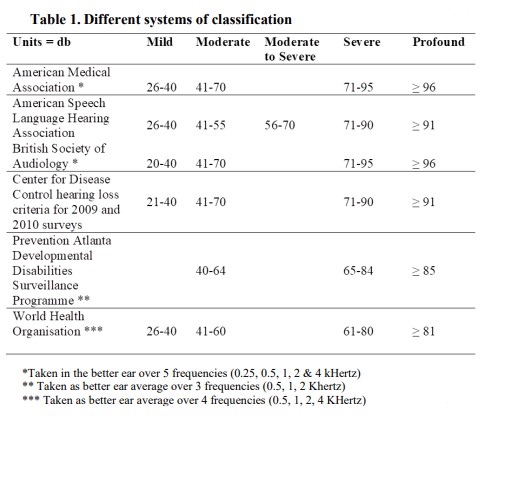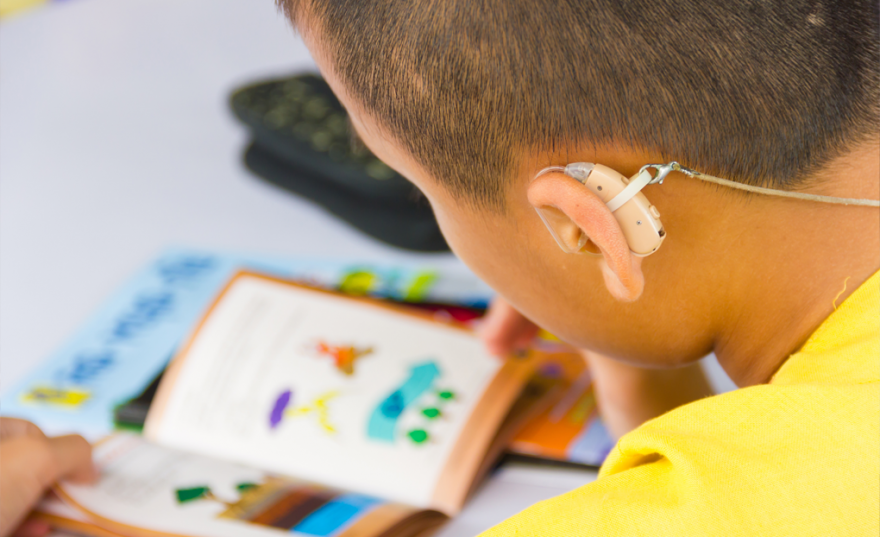In 2018, Barry Wright and colleagues at the Lime Trees Child, Adolescent and Family Unit in York published a paper in the International Journal on Mental Health and Deafness that highlighted the wide variation between classification systems for hearing loss. In this enlightening piece, Wright et al. show that six of the most commonly used classification systems all assign the same descriptive terms to different decibel (dBHL) thresholds (Table 1).
For example, there is a staggering 15 dBHL difference in the definition of “profound” deafness between the World Health Organisation’s classification system (≥81) and the American Medical Association’s system (≥96 dBHL). The lack of a single classification system is clearly problematic, not least because it renders intervention studies difficult to interpret and has implications for patient access to services. Going forward, Wright et al. hope that awareness of the differences between these classification systems will improve. Meanwhile work is needed to determine whether a unified system might be helpful. Finally, they explain that practitioners should ideally consider audiological thresholds, as just one part of a holistic assessment, of sensory profiles and quality of life.
Table 1: Different systems of classification. Reproduced with permission from Wright, B. et al. (2018), The use of audiological classification systems, International Journal on Mental Health and Deafness. 4: 59-64.

Referring to:
Wright, B., Moore, D., Smith, J. & Richardson, T. (2018), The use of audiological classification systems. International Journal on Mental Health and Deafness. 4: 59-64.
